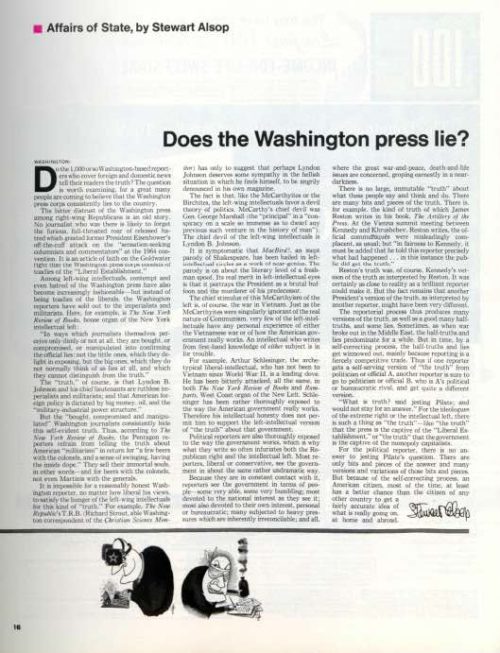Does the Washington Press Lie?
There’s a lot of talk of “fake news” and distrust of the media these days, but fifty years ago, at the height of the Vietnam war, the role of the press was also controversial as news from the front became increasingly grim and more at odds with the government’s account of the war. In a July 15, 1967, editorial in the Post, famed columnist Stewart Alsop—a supporter of the war—put things in perspective when he asked, “Does the Washington Press Lie?” (see below).
Alsop writes that the media was too big and diverse for one viewpoint to permanently dominate. Moreover, the press worked within a self-correcting process. Reporters could always advance themselves by pointing out other reporters’ errors and disproving their lies. “The half-truths and lies get winnowed out, mainly because reporting is a fiercely competitive business,” he writes.
Following the war, America appeared to re-evaluate the press. Their trust of the media rose, aided by the publication of the Pentagon Papers, which proved that successive American governments had, in fact lied about Vietnam, and Watergate, where the press was instrumental in exposing the crimes of the Nixon Administration. In 1976, Gallup reported the highest level of Americans’ trust in the media: 72 percent. But trust has eroded over the years. In 2007, polls showed public trust slipping under 50 percent. Today, it has fallen to 32 percent.
